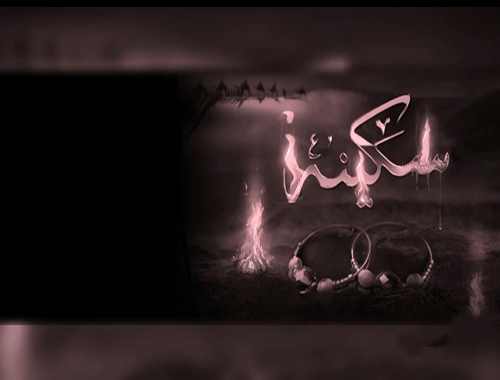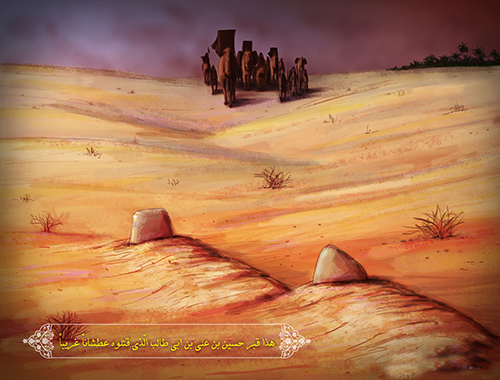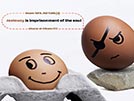Chapter 4-Venues to Allah
- Details
- Hits: 4217
Chapter 4
Venues to Allah
--------------------------------------------------------------------------------
Some Venues Leading to Allah Almighty
Be informed that there are venues which lead to Allah and which number as many as the beings themselves. [10] For each of Allah’s creation there are as many paths leading to Him as many as there are beings. A wretch is one who sees the mercy of Allah as straitened though it encompasses everything.
Be informed that there is no way bringing success than thinking well of Allah, for He is according to what His believing servant thinks of Him: good for good and vice versa. People are accustomed, by their evil-insinuating souls, and because of Satan, to think ill of their Lord. They are swift to have presentiments, to feel despondent at the mere witnessing of the signs of affliction. They are frightened because of the severity of the affliction, feeling certain it is befalling them, so they fall into that from which they try to flee, and whatever affliction they were afraid of will come to pass; we seek refuge with Allah from any kind of such ill thinking.
You have already come to know that such ill thinking qualifies a servant to be dealt with accordingly because of such ill thoughts except if Allah, the Praised One, forgives him. The Prophet (‘s) used to always love to be optimistic and to hate pessimism (Bihar al-Anwar, Vol. 92, p. 2).
Pessimism is according to what a pessimist envisions: If he sees it as severe, so will it be, and if he sees it as light, so will it be, too. And if he does not pay any attention to it, it will be as though it was never there (Rawdat Al-Kafi, p. 197).
A believer who tries to follow in the footsteps of Ahl al-Bayt (‘a) must accustom himself to thinking well of his Lord, expecting Allah to reward him with plenty for the little that he does. He, Praise to Him, is the only One Who gives plenty for little. Whatever good things you expect of Him, and whatever you think of the norms of His generosity, He is more than what you think: Your mental scope is limited while His generosity, Praise to Him, has no limit. He, Glory to Him, has already informed you that He is according to your good thoughts of Him. Our master, the Commander of the Faithful (‘a), has said, ‘Whoever thinks well of you, you should prove him right’ (Bihar al-Anwar, Vol. 74, p. 212). Actually, some incidents and legacies tell us that one who thinks well of something, Allah will prove him right and facilitate for him according to his good expectation, as if this is linked to thinking well of Allah. This is so because the meaning of thinking well of someone is rendered to thinking well of Allah Who instilled in him such hidden yet known goodness, that is, the source of everything good is Allah; Allah, therefore, actualizes such a notion, proving its accuracy. One particular hadith clearly states that if anyone thinks well even of a stone, Allah will place a lot of goodness in it. The person who transmitted this tradition, thereupon, asked the Imam (‘a), ‘... a stone?!’ The Imam (‘a) said,
‘Don’t you see the Black Stone?!’ [11]
One deducts from the above that Allah, Praise and Exaltation are His, proves the good intentions of those who believe in Him with regard to each other, letting such intentions materialize.
Another example is the testimony of those who testify for a deceased person, saying that they did not know anything about him but good things, drawing on thinking well of others, actually on their lack of knowledge of anything bad about him. The hadith states that Allah sanctions their testimony, forgives them and forgives him whatever He knows which they do not know. The requirement of good intention is that Allah permits it to materialize with regard to the person who thus thinks as well as the subject of the thought except when there is a strong obstacle hindering its application to one who thus thinks of him or of it. In this case, Allah helps its materialization to the other party. Other legacies indicate that a man may be generous to another man based on his assumption that he is good, so Allah permits him, on its account, to enter Paradise even when Allah knows that the person to whom this man was generous is one of the inmates of the Fire. This is a case when there is a strong obstacle in the way of realizing the good thought about the man who receives such generosity, so the reward is the lot of the other person because of his good intention.
The outcome of all of this is that anyone who acts upon what he is commanded, that is, to think well of his believing brethren, will never be disappointed. His good intention may prove to be accurate, or the matter will be turned according to his own good intention through the mercy of Allah, or He may help such a good intention materialize. If nothing good reaches the person of whom he thinks well, this will not harm him in the least.
This is a great lesson in thinking well of the believers. Perhaps it is based on this concept that the congregational prayer is accepted, for those who follow the Imam think well of him, so they pray behind him, advancing him as intermediary between them and Allah in the acceptance of their prayers. Allah, therefore, grants them their wish, accepting the prayers of everyone because they thought well of Him. There are other examples of such good intentions such as one who drinks from the remnant of a believer’s ablution water seeking blessings, and it is like drinking the water of Zamzam. Both Martyrs have said, ‘A group of highly distinguished men drank of the water of Zamzam seeking the realization of religious and secular objectives, earning them all’ (Sharh al-Lam`a al-Dimashqiyya, Vol. 2, p. 329).
Some supplications contain admonishment that the best of the means of earning sustenance is supplication. One states the following:
‘Lord! Grant me conviction and to think well of You’ (Bihar al-Anwar, Vol. 95, p. 95).
The ahadith contain something even more impressive, that is, Allah grants the realization of a good intention even if it is false. Imam Al-Sadiq (‘a) is quoted as having said,
‘On the Day of Judgment, a servant is brought, and he is ordered to be hurled into the Fire. The servant turns back, whereupon Allah, Glory and Exaltation are His, says, ‘Bring him back.’ When he is brought back, Allah asks him, ‘O My servant! Why did you turn back to Me?’ He answers saying, ‘Lord! I did not think of You to be like that!’ Allah, the most Great One, asks him, ‘What did you think of Me, then?’ The man would say, ‘I thought that You would forgive me and permit me to reside, through Your mercy, in Your Paradise.’ Allah, the most Exalted One, would say, ‘O My angels! I swear by My Dignity and Greatness, by my Loftiness of Station, that this man never thought of Me well even for one moment. Had he thought well of Me even for a moment, I would not have terrified him with the Fire. Sanction his life and lodge him in Paradise.’ (Al-Jawahir al-Saniyyah, p. 270). [12]
Look into this incident and you will see what cannot be described. It is through a tradition such as this and through observing its likes of the Divine boons that our good intentions are strengthened and our hopes for an inclination by the Lord of Greatness be included under thinking well of Allah. If they are not from it, they are no less than pretensions. You have already come to know how He sanctions them and treats them as though they were real. His judgment in both places is one and the same: ‘... you will see no want of proportion in the creation of (Allah) the Most Gracious One.’ (Qur’an, 67:3).
Be informed that merely thinking well of Allah does not mean that one should remain inactive, leaving aside the doing of good deeds with the excuse that He thinks well of Allah, for this is one of the tricks of Satan the Accursed, may Allah grant us refuge from his mischief together with all those who believe in Muhammad (‘s) and his purified Progeny (‘a). Rather, it obligates one to be attracted to what Allah has in store with Him and to strongly desire what Allah grants. If one loves what Allah has to offer, he will be attracted to His grants, considering any hardship as easy. If one knows what he seeks, it will be easy for him to undertake the effort.
Our master, al-Rida (‘a), is quoted as having said, ‘Allah revealed to [Prophet] David (‘a) saying,
‘A servant of Mine may come to Me with one good deed whereby I grant him Paradise. He was asked, ‘Lord! What is this good deed?’ He said, ‘He removes the worry of a believer even with half a date.’ David (‘a) said, ‘Anyone who truly gets to know You can never lose hope [of receiving Your mercy]’ (Al-Jawahir al-Saniyyah, p. 79.).
So, if the most Exalted One and the most Great grants this great Paradise, the width of which is like that of the heavens and the earth, in exchange for half a date [given by way of charity], I plead to you in the Name of Allah to answer me: How can anyone stop dealing with such a Generous One and become indifferent to such dealing even for a twinkling of an eye?! What would be one’s alternative? If one lost a moment wherein he did not pay his full attention to Allah, what can his compensation for his loss be? Never! He has surely missed something for which there is no compensation and has cheated himself irreparably.
It is for such a conclusion, and due to the intensity of Allah’s compassion towards His believing servants, that the glorious Shari`ah came to arrange the great rewards for the believers when they move or when they do not, so much so that Imam Ali son of Imam al-Husain (‘a) taught his followers to recite the following supplication: ALord! Let our heartbeats, the movements of our parts, the twinkling of our eyes and whatever we utter be worthy of receiving Your rewards’. (Al-Sahifah al-Sajjadiyyah, p. 60). He (‘a) has also said the following in some of his supplications:
‘... and I seek Your forgiveness on account of every pleasure attained without remembering You’ (the 15th munajat).
Allah Almighty wants His servants not to lose a loss for which there is no compensation by being too indifferent to deal with Him, thus missing His rewards for even the twinkling of an eye. This is why He has made the venues leading to Him count as many as His beings, so much so that one who drinks water and remembers the thirst of al-Husain (‘a) and his Ahl al-Bayt (‘a), so he condemns his killer, Allah writes down for him a hundred thousand good deeds, wipes from him a hundred thousand sins, raises his status a hundred thousand degrees, regards him as though he set free a hundred thousand slaves and resurrects him on the Day of Judgment with a cool heart (Al-Kafi, Vol. 6, p. 193).
Can you imagine that the One Who thus grants, who prepares such rewards, agrees to let His servant, who needs Him, the Absolute Rich One that He is, waste even one breath which he draws? Never! Far away it is from Him! Rather, He wants this poor servant to willingly seek his Lord, for there is no good except that it is with Him, nor is there any honor except in seeking Him. Once he seeks Allah, He, too, will seek him. Once he seeks Him, He will treat him with His kindness and generosity and be his guide whenever he contemplates, moves, settles, sleeps, remains awake, with the Pleasure of His Lord according to His generosity, open-handedness and blessings.
Imam al-Baqir (‘a) has said, ‘Allah revealed to David (‘a) to
‘Inform your people that no servant among them whom I command, so he gives Me, except that it becomes incumbent upon Me to listen to his wish, to assist him in obeying Me. When he asks me, I grant him; when he calls upon Me, I answer him; when he seeks refuge with Me, I grant him refuge; when he pleads to Me to give him sufficiently, I grant him till he is satisfied; when he relies on Me, I protect him from wherever he is vulnerable even if all My beings conspire against him.’ (Al-Jawahir al-Saniyyah, p. 74).
Such is the sign of His extreme compassion and spacious mercy: He goes to extremes in warning His poor servant against going where he has no business, let alone where he is harmed. The following is excerpted from one of the Qudsi addresses cited from p. 66 of Al-Jawahir al-Saniyyah:
‘O son of Adam! If you find cruelty in your heart, an ailment in your body, a decrease in your wealth, a deprivation in your sustenance, you should then know that you spoke about what does not concern you.’
This is a reference to unnecessary talk, let alone prohibitive one, for the latter is more dangerous than poison, for poison affects one’s body, while unnecessary talk causes one’s heart to be hard, decreases one’s wealth, deprives him of his sustenance in addition to harming his body. How, then, can the Compassionate God accept that one should thus expose himself to such great perdition? Rather, it is narrated that Allah, Glory belongs to Him, holds His servant accountable for looking at what does not concern him just as He holds him accountable for talking about what is none of his business. [13]
Because He does not want to let His poor and miserable servant waste one of the looks which he casts, He made looking at the face of a scholar a norm of adoration, looking at the Ka`bah as a form of adoration, and looking at what Allah has created in order to gain admonishment as a form of adoration, for an hour of such contemplation is equivalent [with Allah] to sixty years of adoration:
‘Wherever you turn, God’s presence is there. God is all-Pervading, all-Knowing.’ (Qur’an, 2:115).
Imam al-Sadiq (‘a), Ja`far ibn Muhammad ibn Ali (‘a), quotes his forefathers citing the Prophet (‘s) saying,
‘Allah revealed to Prophet David saying: ‘O David! Just like the sun which can shade quite many, My mercy is never too straitened for anyone who seeks it. And just like pessimism does not harm anyone who is not a pessimist, those who are pessimist cannot save themselves from dissension.’ (Al-Jawahir al-Saniyyah, p. 77).
This divine Qudsi address is one of the greatest testimonies to our argument that a pessimist who thinks ill of his Lord cannot save himself from dissension, so he falls into perdition. And anyone who is not a pessimist, on account of thinking well of his Lord, cannot be harmed by the things held with pessimism; their evil is warded off through his own good thoughts of Allah. Anyone who seeks the mercy of Allah by studying the path of Ahl al-Bayt (‘a) [14], and who follows in their footsteps, can never see their paths as too narrow. Rather, they are still expanding. The gates, one of each opens to a thousand other gates, keep opening for him till he reaches the station which brings him happiness through the noor of learning and knowledge, something with which Allah praised His Prophet (‘s) when He said,
‘Have We not expanded your breast for you?’ (Qur’an, 94:1).
If Allah blesses him with reaching such a station, he will be one of those who will not be harmed by this life’s afflictions, nor by the afflictions of the Hereafter. In other words, if any kind of affliction befalls him, he does not regard it as an affliction, as people do; rather, he considers it as one of the means which enable him to attain the Pleasure of Allah. According to the lofty stations with Allah Almighty which he seeks, he enjoys the greatest refuge and the most pleasing of rewards. This is why some of the attributes of al-Husain (‘a), which were shared by his fellows at the [battle of] Taff, is that whenever affliction intensified, the glow of their faces increased in intensity, and they became more optimistic. May Allah grant us and yourself such stations. How can the kings’ sons ever enjoy such pleasures?! Suffices us Allah, and how Great His help is and His support!
Notes:
[10]. This is a fact which increases the insight of the servant of Allah as he treads towards Allah Almighty. There is no fixed equation about the particularities of seeking Him. Every period of time, place, individual and circumstance has its own requirements and obstacles. This is why the venues have been so numerous though the path is one and the same. Allah, hence, made the first plural and the second singular as we see in the Qur’an. Here, one should not be too much concerned about the particularities of an individual treading the path, though he may get there, because each individual has his own circumstances and obligations. Getting to know the most suitable path is the concern of all those who tread this path. There is no problem with the obligatory injunction from the Shari`ah to get to know this fact from what is narrated in the fiqh. Rather, the problem is inherent in the personal events an individual undergoes wherein there is no role for fiqh to play such as the issue of so many more, or most, important things there are. For this, one who treads the path needs a keen insight to know the most straight venue compared with other straight ones. These may be achieved either by getting a sense of apprehension or of conviction of it, or by being coerced to take the right course even if one is not aware of being coerced. Or it may be done through the recommendations of those endowed with knowledge for whom the gates are opened, hence Allah inspires their intellects and addresses their power of reasoning. Thus, they dawned fully awake in their hearing, vision and comprehension (Nahjul-Balagha, Vol. 2, p. 211). The Prophet (‘s) has said,
‘Beware of the believer’s ferocity, for he sees through the noor of Allah.’ (Bas’air al-Darajat, p. 375).
[11]. I have not come across this tradition in the references at my disposal, yet the narrative, if we suppose there is one as such, wants to point to the elements of this existence as being capable of receiving blessings from the Lord. Although all things in existence are equal in standing before Him, their Originator, yet, because of matters with which only He is familiar, some of them are chosen by Him to receive His kindness, such as certain sacred places and blessed times. They, therefore, are transformed, after receiving such honoring, to serve one of His affairs. Thus, their characteristics and effects become distinguished from those of their peers in existence. Here is Joseph’s coat: upon being put on his father’s face, vision is restored to his father. And here is the Arch of Covenant wherein there is tranquility for them from their Lord. And here is a handful from the footprints of the Messenger which performs miraculous things. And here is the Black Stone, according to the afore-mentioned tradition, which has been made like His right hand on earth. All of these things are intangible; so, what would happen if the matter applies to the world of articulate beings, the souls which submitted to their Lord willingly such as the souls of the Infallible ones (‘a)?!
[12]. This is a narrative that instills hope in the hearts of many people. Look at such mercy which encompasses even those who are the least qualified [on account of being liars] to pretend to think well of Allah; so, what would you say about one who sincerely anticipates His mercy?! What about one who implements such anticipation in his life?! Yet we again wonder: How many are those who are aware of the weight of such a statement articulated by such a servant on the Day of Judgment? Had all the people gathered together on the Day of Gathering applied it, they would all have attained salvation! But the Almighty is the One Who instructs His servant as to how he argues with Him on the Day when He meets Him because of what He saw him doing in the life of this world and whereby he deserves such munificence on such a terrifying Day.
[13]. Such is the requirement of precise surveillance of one’s conduct in its highest degrees, for what the eyes see is regarded by most people as something which does not require accountability, since the eye sees so long as it is not shut, whether one wants it or not. But one who watches himself turns this involuntary operation into a voluntary one. He, therefore, will not look at what he is not supposed to, let alone what he is prohibited from looking at. Through this hadith and its likes, it becomes quite clear that the path to Allah, Al-Sirat al-Mustaqim, is sharper than the sword’s edge. This is why it is hard to reach the destination except if Allah grants His favor and mercy.
[14]. The expression of the compiler here is quite magnificent. On one hand, he has made the study of their path rewardable with the Divine mercy. The very inclination to know about them and to feel comfortable with the signs of their competition with each other in doing good is an indication of one’s readiness to receive blessings from them. Otherwise, souls that are strange to each other do not feel comfortable with statements such as these about those who communicated with the world of ghayb. On the other hand, he stressed the necessity to stay in touch with them, for how can anyone be guided to the greatest of Allah’s Paths unless he absorbs the truth about the Divine wilaya represented in the Prophet (‘s) and his wasis (‘a)?! How can such souls, which never comprehended even the most obvious facts in the world of knowledge, for nothing has received more attention than the wilaya (Al-Kafi, Vol. 2, p. 18), comprehend the particularities of treading the path leading to the Lord of lords?!











